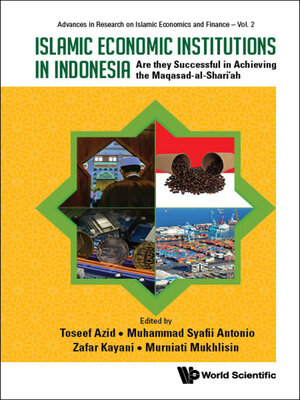Islamic Economic Institutions In Indonesia
ebook ∣ Are They Successful In Achieving The Maqasad-al-shari'ah · Advances In Research On Islamic Economics and Finance
By Toseef Azid

Sign up to save your library
With an OverDrive account, you can save your favorite libraries for at-a-glance information about availability. Find out more about OverDrive accounts.
Find this title in Libby, the library reading app by OverDrive.



Search for a digital library with this title
Title found at these libraries:
| Library Name | Distance |
|---|---|
| Loading... |
Islamic institutions have had a very long history, whose performance was muted during the Colonial Period. However, after the Second World War, the revival of the Islamic institutions began. Throughout its history, it had been assumed that these institutions are working for the betterment of humanity. Their target is to achieve a high level of the welfare for the concerned community. Historically these institutions were waqf, zakat and sadaqat. However from the last three decades, Islamic financial institutions have been established with the objective of providing interest- free products, transaction and services for Muslims. However there has been lot of criticism on the performance and role of these institutions. This becomes especially pertinent in a Muslim country like Indonesia, where there is a dire need to know that how these institutions are working and if it is possible for them to achieve the objectives of the Shari'ah. Some scholars have claimed that these institutions are performative and only serving 'lip service', and there are no significant differences between the Islamic and secular institutions where both kinds of institutions operate on the same foundations and differ only in use of technical terminologies. This volume aims to analyze some of the Islamic institutions which are operating in the world's biggest Muslim country, Indonesia, as a case study and analyze the contemporary Islamic Banking products and practices in the light of 'Maqasad al-Shari'ah'. The book's objective is to propose an improved system of Islamic institutions for Muslims to refer to. This volume will also analyze why these institutions are currently not able to comply with the Maqasad al Shari'ah and how it is possible to enhance the level of economic development, social wellbeing, individual freedom and equality, elimination of injustice and poverty, and achieve the other targets of the Maqasad through these institutions.







